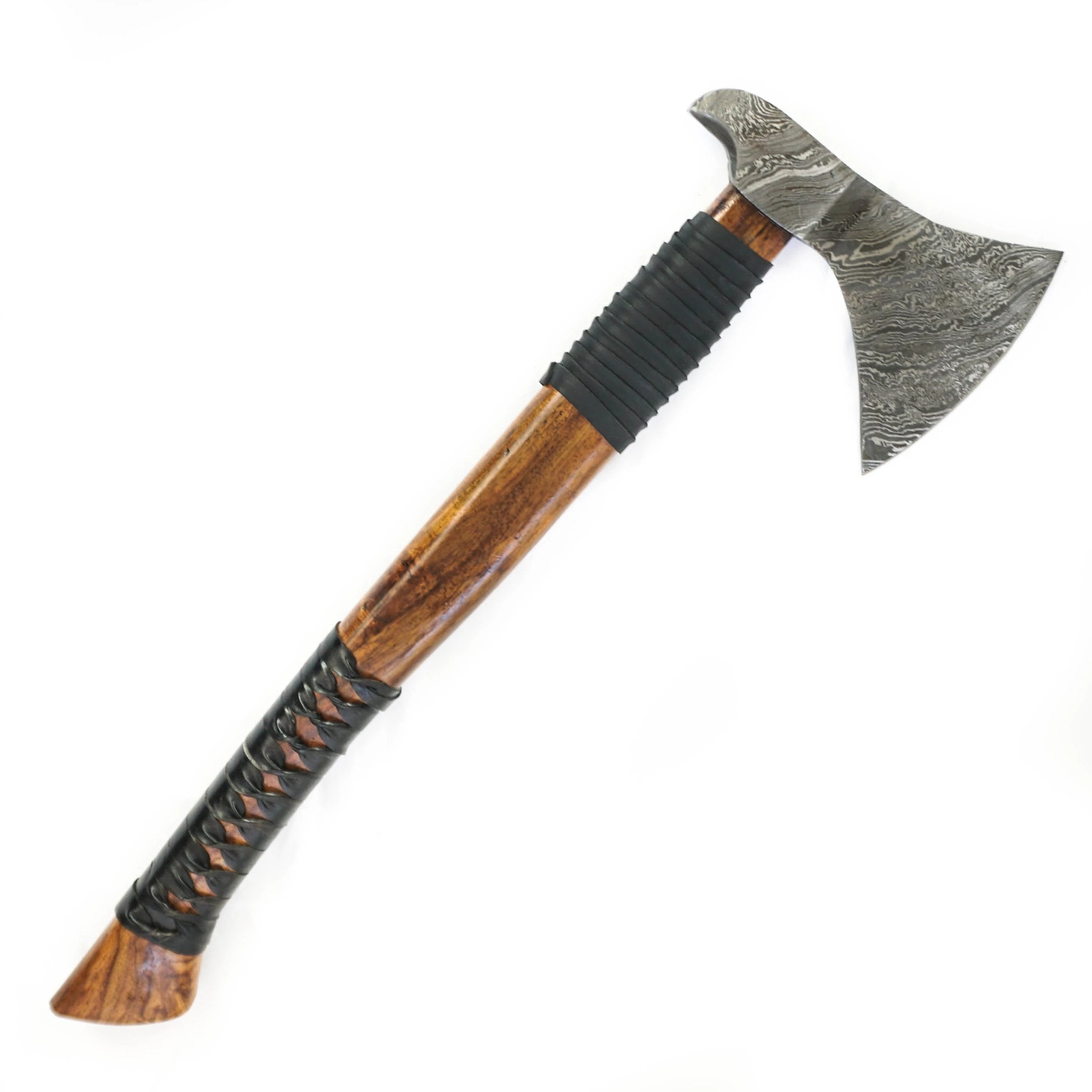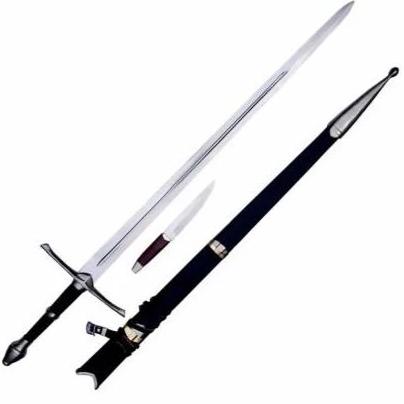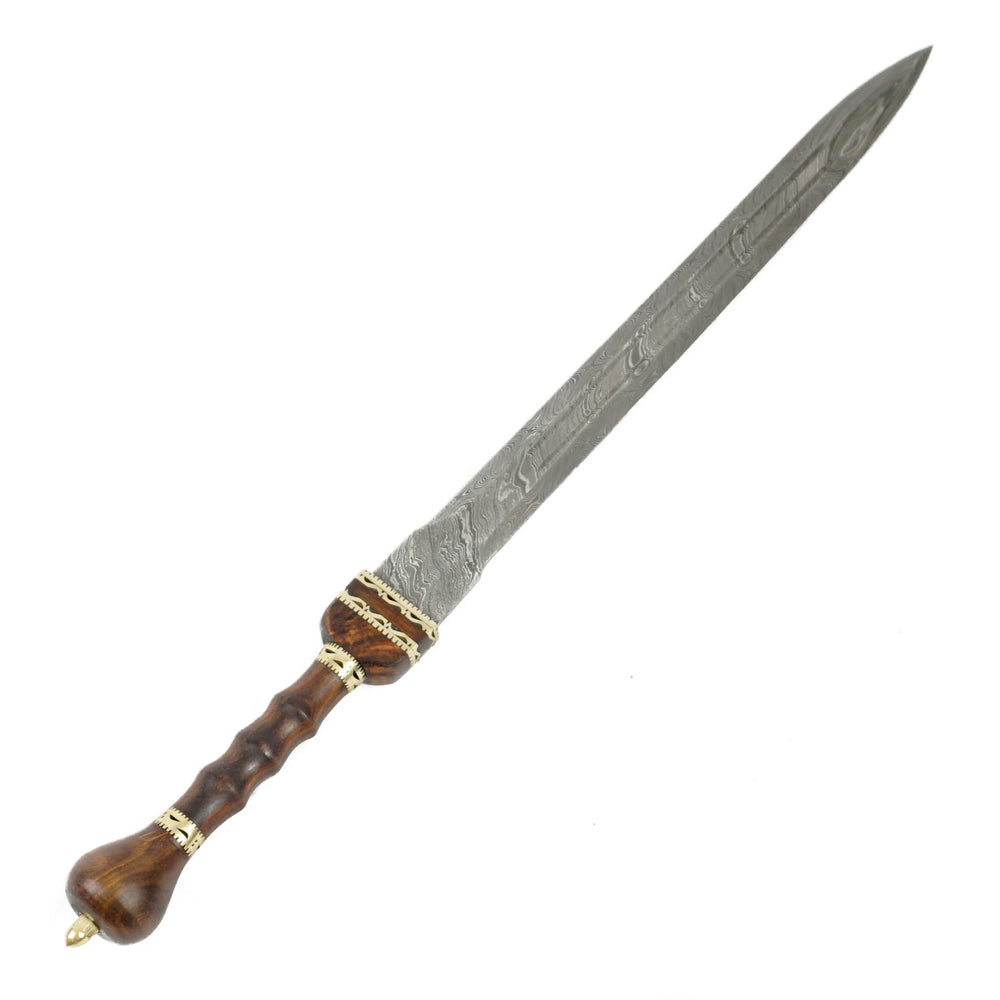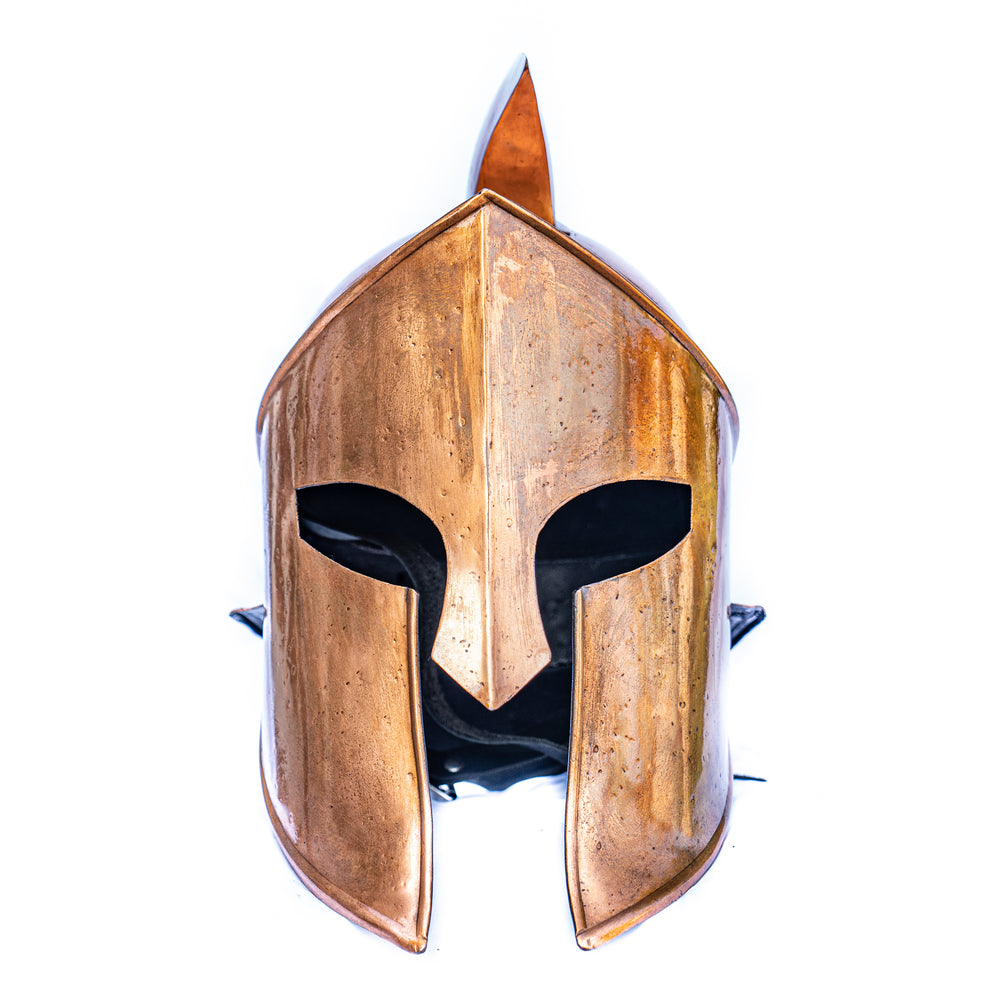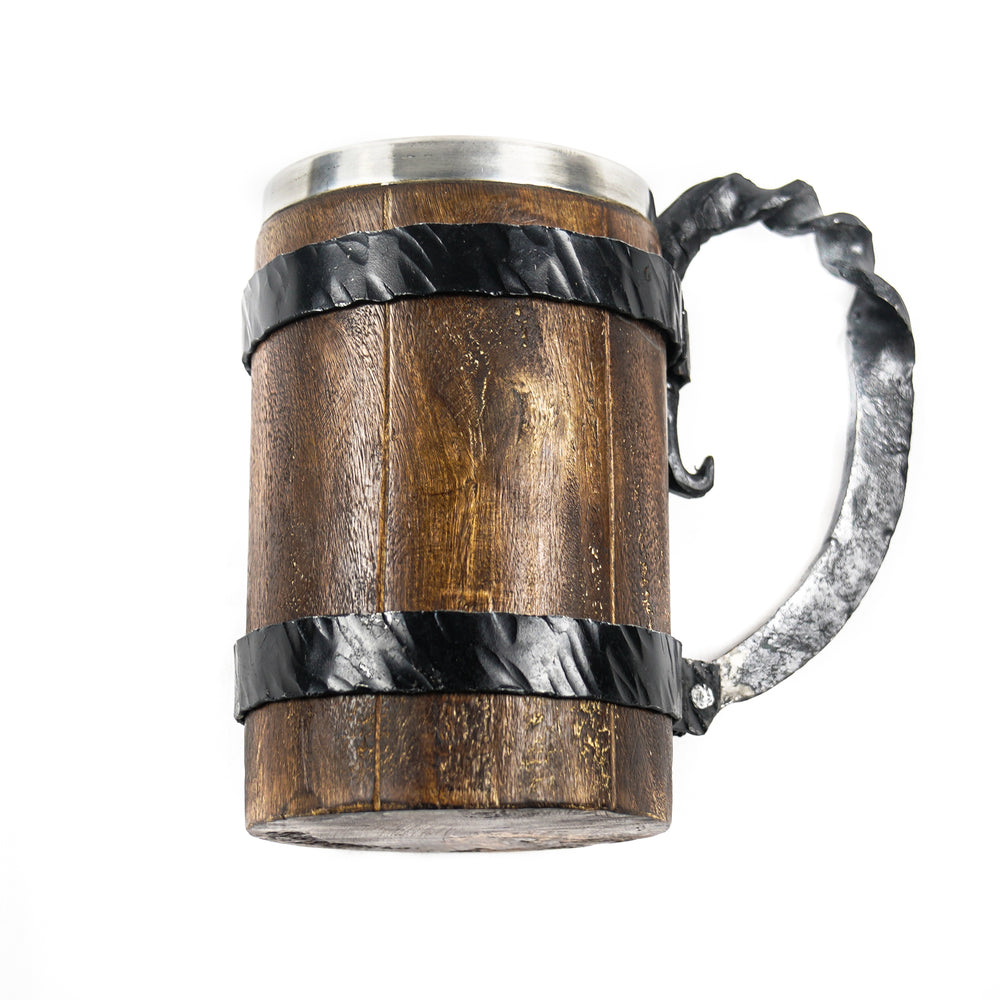Kopis Description
The kopis is a one handed blade stemming from ancient Greece. The blade had a forward curve and was originally used for cutting meat, slaughter, or animal sacrifice. The use changed over time to a weapon, as did the size. Early versions were upwards of 26” long while later versions were as short as 19”. The concave shape of the blade, with the enlarging portion closer to the tip, helped deliver a powerful chop, similar to an axe. The handle had a inward curve to shelter the hand during the blows. The kopis is believed to be the influence for the Gurkha kukri from Nepal.
Blade Materials
The sword is made from 1095 steel. 1095 steel is the highest carbon steel commonly used in swords. It has a carbon level of .95% which is one of the highest carbon levels for any type of steel. The most common high carbon swords are 1045 steel which only have .45% carbon content in the steel. 1095 steel is known for its ability to maintain an edge and is an incredibly hard steel. 1095 steel typically has a hardness of 56-58 HRC. The problem with 1095 steel is that it is lacks flexibility. Flexibility is critical to sword making so the sword doesn't break on high impact collisions. To increase the flexibility of this steel, clay tempering is used to soften the steel. The clay is thickly painted on the blade to insulates the parts of the blade that we want softened so they cool more slowly during the quenching process. In this case, the clay is painted everywhere except the edge. This clay tempering process keeps the strong and sharp edge of the blade while allowing the rest of the blade to be more flexible. This process optimizes the strength of the blade and maximizes its sharpness creating an incredible strong blade and sharp edge.
Sword Details
Handle Material: Wood and Brass
Overall Length: 19"
Rockwell Hardness: 56-58 HRC
Sheath: Leather sheath
Blade Material: 1095 Steel
Kopis Sword- High Carbon 1095 Steel Sword- 19"

